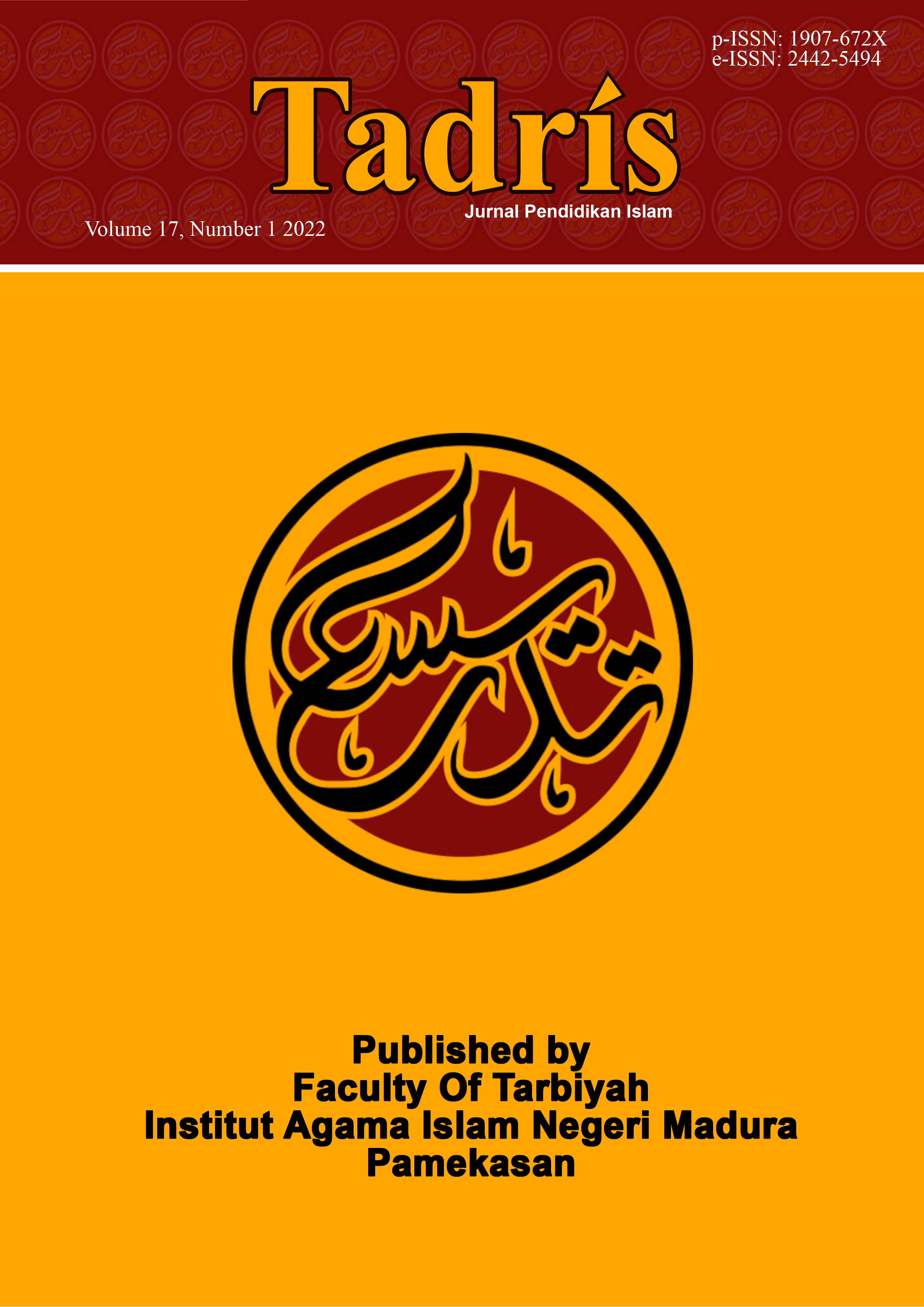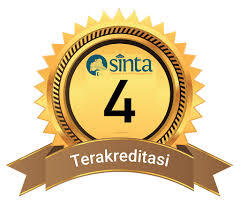Analysis of Environmental Education Materials in Islamic Religious Education and Character Textbook for Senior High School
 Abstract views: 498
,
Abstract views: 498
,
 PDF downloads: 381
PDF downloads: 381
Abstract
Abstract: The environment education (PLH) material has almost no place in the Islamic Religious Education and character (PAI-BP) textbooks for senior high school levels. Evidently, in the textbooks for grades 10, 11, and 12, none of the chapters specifically contains PLH. Even if there is PLH material, it is integrated into certain chapters with very limited descriptions. In contrast, the environment is one of the important aspects of Islamic teachings, especially in human relations with other creatures and the natural surroundings. Therefore, preserving in an Islamic perspective, the environment is not only a noble act but also rewarding worship. On the other hand, destroying the environment is not just an act of violation but also a sin that is threatened with punishment. For this reason, the government needs to revise the curriculum in order to adequately increase the content of PLH material in PAI-BP lessons. This, in the short term, aims to overcome the shortage of PLH materials, PAI-BP teachers need to optimize PLH through habituation, providing examples of clean living and clean environmental activities.
Downloads
References
Al-Halali, Imad. Tahdzīb al-Akhlāk li ibn Miskawaih: Dirāsah wa Tahqīq. Lebanon: Mansyūrat al-Jamal, 2011.
Ali Yafie. Merintis Fiqh Lingkungan Hidup. Jakarta: Ufuk Press, 2006.
Al-Qaradhawi, Yusuf. Islam Agama Ramah Lingkungan. Jakarta: Pustaka al-Kautsar. 2002.
Bogdan, R., & Biklen, SK. Qualitative Research for Education. Boston: Allyn and Bacon, Inc, 1992.
Decree of the Minister of Religion Number 211 of 2011 concerning Guidelines for Developing National Standards for Islamic Religious Education in Schools.
Development Team. Guide to Developing BA-PJJ Ddistance Learning Teaching Materials for Elementary Schools. Pekalongan: Pekalongan City Education Office, 2020.
Directorate General of Islamic Education. Islamic Religious Education and Character (Class X SMA/SMK). Jakarta: Ministry of Religion, 2019.
Directorate General of Islamic Education. Islamic Religious Education and Character (Class XI SMA/SMK). Jakarta: Ministry of Religion, 2019.
Directorate General of Islamic Education. Islamic Religious Education and Character (Class XII SMA/SMK). Jakarta: Ministry of Religion, 2019.
Muhadjir, Noeng. Metodologi Penelitian Kualitatif. Yogyakarta: Rake Sarasin, 2000.
Nurhafni, et.al. “Strategi Pengembangan Sekolah Adiwiyata Nasional di Tingkat SMA Pekanbaru”, Dinamika Lingkungan Indonesia, 6 (1), 2019.
Regulation of the Minister of Education and Culture Number 37 of 2018 concerning Amendments to the Regulation of the Minister of Education¬¬Education and Culture Number 24 of 2016 concerning Core Competencies and Basic Competencies of Lessons in the 2013 Curriculum in Primary and Secondary Education
Regulation of the Minister of Environment and Forestry of the Republic of Indonesia Number P.52/MENLHK/SETJEN/KUM.1/9/2019 concerning the Movement for Care and Culture of the Environment in Schools.
Sutoyo. “Paradigma Perlindungan Lingkungan Hidup”, FAIR: Journal of Law, 4(1), 2013. DOI:10.33476/ajl.v4i1
Suyanto. Urgensi Pendidikan Karakter, http://waskitamandiribk.wordpress.com/2010/06/02/urgensi- Pendidikan-character/2-5-2011.
Copyright (c) 2022 TADRIS: Jurnal Pendidikan Islam

This work is licensed under a Creative Commons Attribution-NonCommercial 4.0 International License.
The journal operates an Open Access policy under a Creative Commons Non-Commercial 4.0 International license. Authors who publish with this journal agree to the following terms:
- Authors retain copyright and grant the journal right of first publication with the work simultaneously licensed under a
 Commons Attribution-NonCommercial 4.0 International License
Commons Attribution-NonCommercial 4.0 International Licensethat allows others to share — copy and redistribute the material in any medium or format, and adapt — remix, transform, and build upon the material.
- Authors are able to enter into separate, additional contractual arrangements for the non-exclusive distribution of the journal's published version of the work (e.g., post it to an institutional repository or publish it in a book), with an acknowledgement of its initial publication in this journal.
- Authors are permitted and encouraged to post their work online (e.g., in institutional repositories or on their website) prior to and during the submission process, as it can lead to productive exchanges, as well as earlier and greater citation of published work (see The Effect of Open Access).














